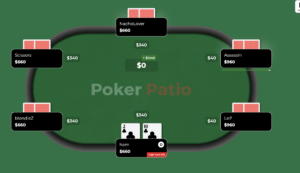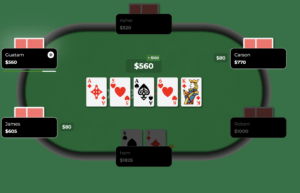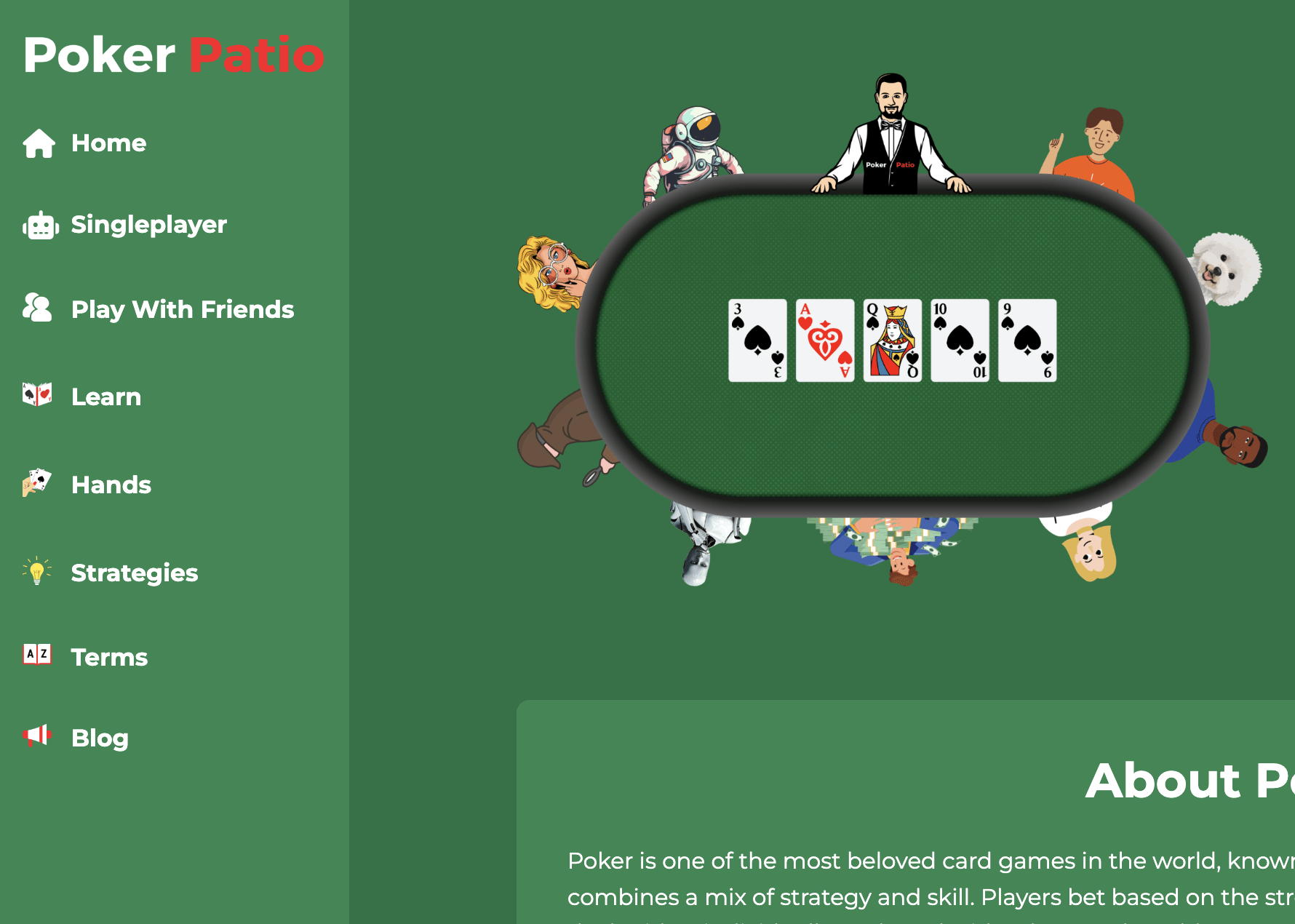I was playing a game called poker patio online, where you can play online or with friends without registering or signing up. The game starts with each player getting $1000, and from there, you play Texas HoldEm poker.
This brings me to the first way that this game puts people at risk for addiction. There is no barrier to entry, you simply have to go on the website and can enjoy unlimited poker. You do not have to register, sign up, or anything like that. This non-existent barrier to entry makes it super easy for players to get started, which contributes to how easy it is to get hooked soon after.
Based on the Programming Chance article, a low barrier to entry also contributes to the addictive nature of slot machines, because it is so easy to spin again or play the next round, which speeds up the time players have to wait for the next reward. The reward then makes players feel good and releases chemicals in the brain which make them want more.
Another way that this game puts people at risk is that you automatically start with $1000 to play, without having to do anything to earn the money. The problem with this is that it makes playing poker very idealistic and unrealistic (everyone has $1000 to just blow away however they like). When I was playing, I found that the fact that I had what felt like so much money had me making big plays when I really didn’t think they were necessarily that smart. Thinking about those moments, I was justifying it by saying that this is a good bluff, and that other players may fold due to it and I’ll get free money. However, after seeing the results (some people folded but not everyone did), I was stuck having invested a lot of money on a below average hand. The fact that I had so much money to start with contributed to me making this bad decision.

Continuing this story, we get to another way that the game contributes to addiction. The round went on, some had folded and some didn’t. I was now worried, having expected everybody to fold. But now, because I had already invested so much money into the round, I ended up continuing to play the round and lost almost all my money by the end of it because the revealing of the cards throughout the round didn’t support my hand well, but I kept raising to keep up the bluff. I was a victim of the sunk cost fallacy, the phenomenon whereby a person is reluctant to abandon a strategy or course of action because they have invested heavily in it, even when it is clear that abandonment would be more beneficial. I didn’t want to fold throughout the whole round because I was already so invested in the round from the first turn. The sunk cost fallacy is a big contributor to addiction in these kinds of games, especially games like poker where running out of currency prevents you from winning more or playing.
This game uses probability in ways that also feed addiction. One example of a situation where this occurs is when a player makes a bad decision, but gets lucky draws and gets rewarded for their bad decision (bad statistically). This happened when I was playing with some friends, and when they won the hand they were very happy and gloating about the win. This led them to wager a lot in the next round too, but they lost. This shows how probability going in one’s favor can lead to impulsive and bad decision making which can lead to addiction.
Another situation where probability fed my addiction is when I folded during a hand and it turned out I had a pair. This made me deeply regret folding the hand, and next hand I spent a lot of money on a bad hand, (but at least slightly better than the last hand) hoping that it would turn out well for me just like it would’ve last turn. However, this wasn’t the case and I just ended up losing money on a hand I shouldn’t have played for as long as I did.

This shows how randomness plays into addiction. There are studies on randomness contributing to addiction. The way to get someone addicted to something is to continually give it to them, but randomly take it away and not give it at certain times so that they are looking forward to the next time and are therefore addicted. This is what you see in animal studies, such as birds pecking a button for food. This is called variable reinforcement.
In my games, the variable reinforcement led to me always wanting to play the next round, in hopes of either doing really good again if i won the last round or in hopes of doing better than the last round if I had lost it.
Variable reinforcement is also behind the addictive nature of slot machines, which was discussed in the Programming Chance article. Players keep playing the slot machines because of the anticipation for the next win created by the variable reinforcement.
Poker is different from other games that use chance or probability because it incorporates a decent amount of skill and knowledge in addition to chance. Unlike slots, players have to understand what a good hand is and some bluffing strategy to have practically any chance of doing well. This contributes to the addictive nature of poker in a special way. Because there is skill involved, there is pride involved, and the players usually give themselves more credit than is actually justified for doing well. Because you can still win mostly due to chance/probability, players feel like they are better than they are,which contributes to the addictive nature and leads to people wasting money adn getting hooked.
Overall, poker is very dangerous due to all these factors, and playing online can definitely lead to playing with real money.



